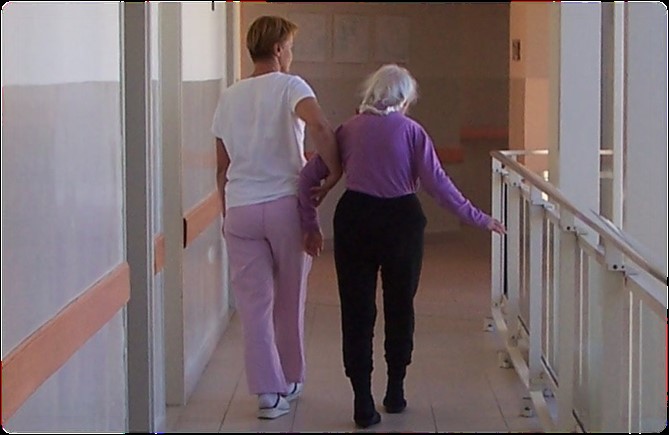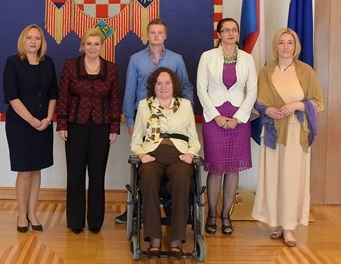Following an invitation from President Kolinda Grabar Kitarović, Ombudswoman Lora Vidović participated in a meeting focusing on the work, activities and powers of the institutions of the Ombudsman and the Special Ombudsmen in Croatia. Along with Ombudswoman Vidović, the meeting was attended by the Ombudswoman for Children, Ivana Milas Klarić, the Ombudswoman for the Persons with Disabilities, Anka Slonjšak, and the Ombudswoman for Gender Equality, Višnja Ljubičić.
The Ombudswomen introduced the President with the work of their respective offices as well as with the problems most commonly encountered by the citizens within their areas of work. As a separate topic, they discussed the possibility of cooperation with the aim of addressing the most pressing social problems, the most prominent of which are the protection of the most vulnerable citizens, as well as combating stereotypes and prejudice.
Ombudswoman Vidović warned about a great amount of mistrust towards the institutions prevalent in the Croatian society, as well as about the fact that many of Croatian citizens are still afraid to report discrimination. The Ombudswoman introduced the President with the encouraging results of the work of the National Preventive Mechanism in the year 2014: following the visits of the Office of the Ombudswoman to five psychiatric institutions and the issuing of 131 recommendations based on the Office’s observations, the institutions in question acted on 99 (i.e. 75%) of the said recommendations.
The Ombudswoman reminded the President of the fact that the Office she is heading is the only national institution awarded with the Status A with the UN’s International Coordinating Committee for National Human Rights Institutions in accordance with the so-called Paris Principles, meaning that the institution of the Ombudsman in Croatia fulfills the highest international standards of independence in carrying out its work.
President Grabar Kitarović took the opportunity to announce intensification in the frequency of her meetings with the ombudswomen with the aim of conducting more detailed joint analyses of the issues pertaining to their respective areas of work.
 Ombudswoman Submits Report 2023 Annual Report to the Croatian Parliament
Ombudswoman Submits Report 2023 Annual Report to the Croatian Parliament The Importance and Impact of Political Discourse in the Pre-Election Period
The Importance and Impact of Political Discourse in the Pre-Election Period International Conference Marks End of the Project on the EU Charter on Fundamental Rights and the Rule of Law
International Conference Marks End of the Project on the EU Charter on Fundamental Rights and the Rule of Law Parliamentary Committee on Human and National Minority Rights Votes in Favor of the Ombudswoman’s 2022 Annual Report
Parliamentary Committee on Human and National Minority Rights Votes in Favor of the Ombudswoman’s 2022 Annual Report World Homeless Day – Invisible, but also Forgotten?
World Homeless Day – Invisible, but also Forgotten? Ombudswoman to Issue Special Report on the Human Rights of Older Persons
Ombudswoman to Issue Special Report on the Human Rights of Older Persons


